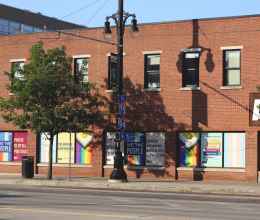It isn’t really about bathrooms, is it?
Of course it isn’t.
It’s not really even about transgender people. It’s about people being different. Those of us who are fortunate enough to do civil liberty and social justice work have always known that. But, to many Americans who don’t know a transgender or gender nonconforming person, the fearful and exclusionary rhetoric about gender identity obscures the truth: Transgender Americans are just like them.
Millions of Americans – 33.4 million to be exact - got the chance to see this for themselves Thursday night when Sarah McBride took the stage in Philadelphia at the Democratic National Convention. Her eloquent and moving speech at the podium of a major political party convention may well prove to be a watershed moment for public understanding about the transgender community.
She began with the simple proclamation of who she is: “I am Sarah McBride--and I am a proud transgender American.” At the podium in Philadelphia, Sarah told the compelling story of her life. She spoke of her fears and of her hopes; she spoke of her love for her late husband, Andrew Cray, and of how his death drives her persistently forward.
“For me, this struggle for equality became all the more urgent when I learned my future husband, Andrew, was battling cancer…in the face of his terminal illness…He never wavered in his commitment to our cause and his belief that this country can change”.
Sarah’s emphatic statement of who she is and her story of a life devoted to equality created the context for all of the work yet to be done.
Admittedly, important questions remain and they deserve to be answered honestly by everyone: Are we a nation that welcomes and values its diversity? Can we look past the differences that too often have been used to exclude, other, and segregate those who do not in some way resemble the majority in power? The answer is, yes, we can choose instead to link ourselves to each other by the common threads of our shared values, and when we do, we are stronger as a nation.
The differences in who we are, whom we love, how we live, and what we look like can all be transcended by the common humanity we possess; our differences make us stronger as a nation. Empowering those who are different from you does not diminish your worth, it enhances and contextualizes your humanity; it makes tangible – even if you are uncomfortable – the idea that we are all deserving of dignity and respect just because we exist.
Andrew’s death transformed Sarah’s humble dream of living her authentic self and working for equality for transgender Americans into a powerful moral imperative: No one should be forced to spend a single day of their life on this planet as less than another. Near the beginning of her speech, Sarah echoed the fear of so many transgender – and black and gay and Latino and Asian and lesbian Americans – “Are my dreams and my identity mutually exclusive?”
Are our dreams and our identities mutually exclusive? Of course not.
This is America.
